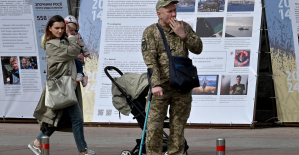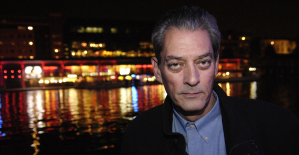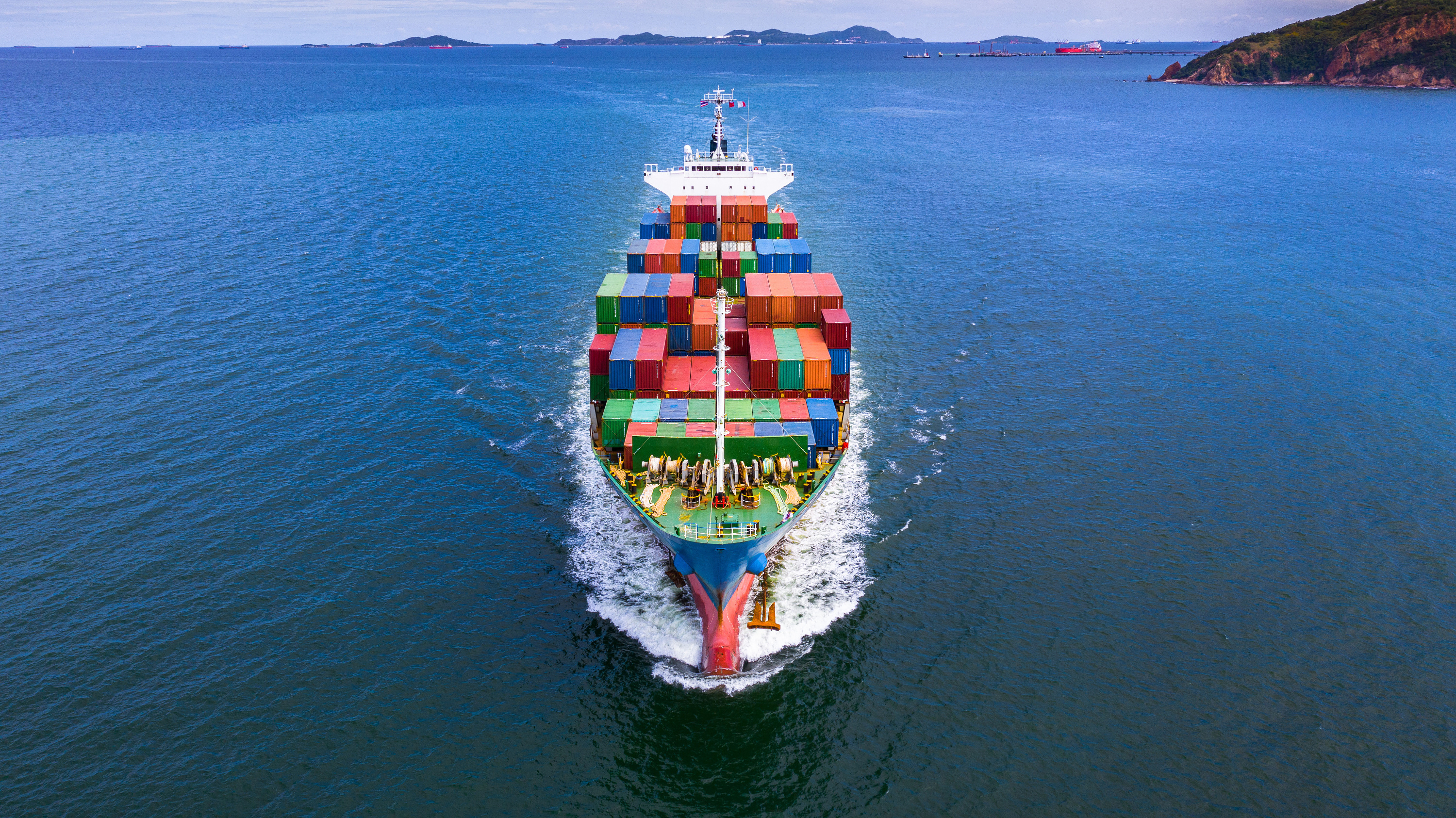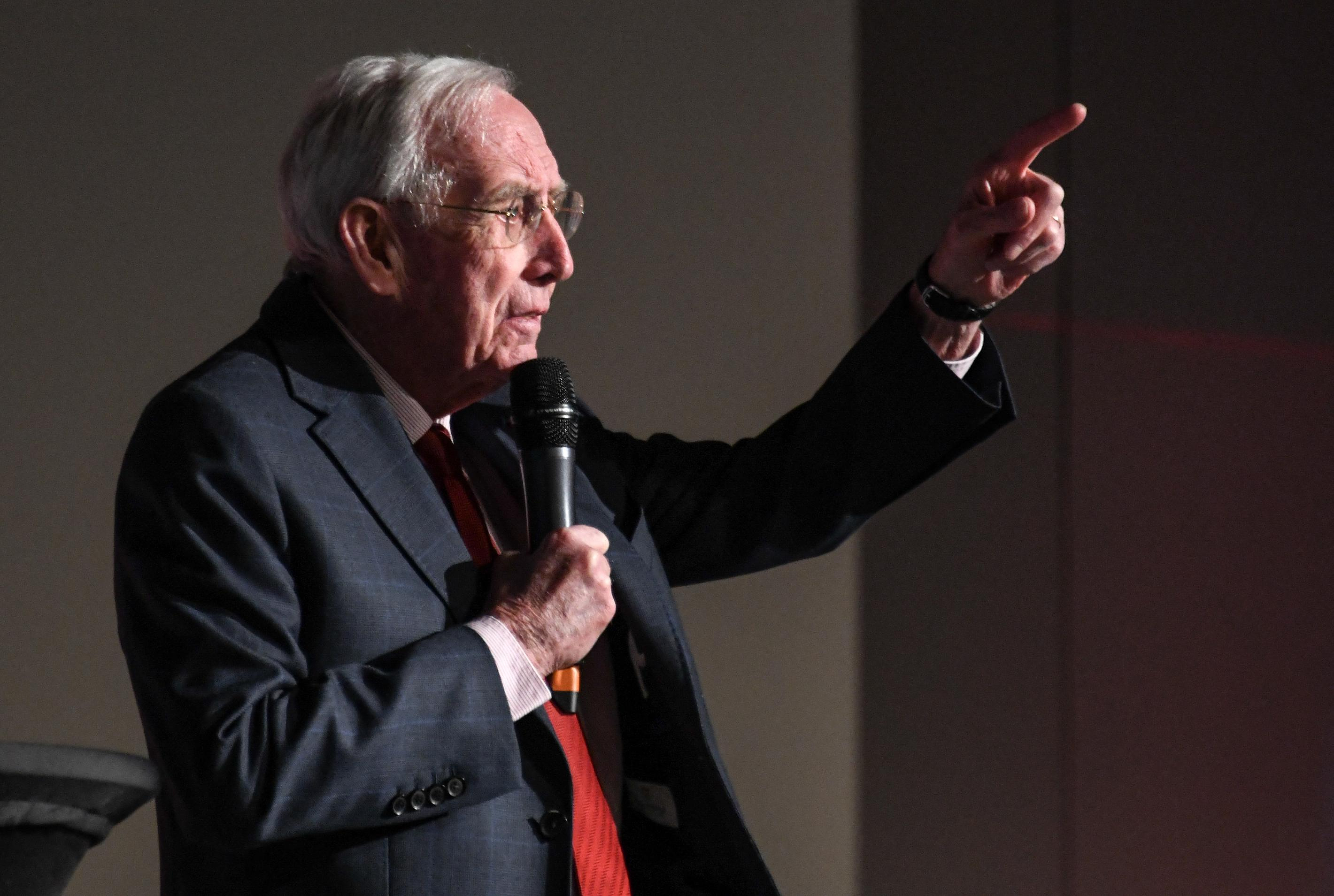The Hamburg economy is concerned about the winter. Although the companies rate their current business situation as good, expectations and export prospects are subdued. The business climate in the city has deteriorated for the fourth time in a row compared to the previous quarters. This is shown by the results of the current Chamber of Commerce economic survey, which was presented yesterday at the headquarters of the interest group in the city centre.
510 companies had participated in the survey in the past few weeks. In terms of business expectations for the next twelve months, 51.5 percent of the companies expect a “rather unfavorable” development, only 4.3 percent with a “rather more favorable business situation”. Expectations in the construction and transport sectors are particularly bleak. The outlook for the financial sector is comparatively positive. A more balanced picture emerges from investment and personnel planning.
Hamburg's economy has shown itself to be robust and reacted quickly to the crisis, according to Chamber of Commerce General Manager Malte Heyne. But politicians have been delayed in picking up on important business demands, "implementation has also been sluggish so far". Heyne: “It must not happen that healthy companies have to go bankrupt before the crisis. A secure energy supply at competitive prices must therefore be the goal of all political decision-makers.”
When asked about the greatest business risks, 72.3 percent of those surveyed named the high electricity, gas and fuel prices. Almost half of the companies are currently passing on the increased prices to their customers.
Investments in energy efficiency measures are mentioned by around 42 percent of those surveyed as a response to the price increases. "Hamburg's economy is presenting and working resolutely towards the goal of becoming climate-neutral by 2040," says Heyne. Now – beyond the current crisis management – a medium to long-term strategy must be developed “to counter creeping deindustrialization”: “A new, rapid planning and approval law and the consistent expansion of renewable energies are central here.”
The Hamburg Institute of International Economics (HWWI) confirms fears of an ongoing downturn. "We are facing an economically difficult winter half-year in which the German economy will most likely fall into a recession," says the scientific director of the HWWI, Michael Berlemann. "Nevertheless, we have to use the next few months to make our economy more resilient so that we don't face the same problems next autumn as we do today, regardless of how the war in Ukraine progresses."

 Poland, big winner of European enlargement
Poland, big winner of European enlargement In Israel, step-by-step negotiations for a ceasefire in the Gaza Strip
In Israel, step-by-step negotiations for a ceasefire in the Gaza Strip BBVA ADRs fall almost 2% on Wall Street
BBVA ADRs fall almost 2% on Wall Street Ukraine has lost 10 million inhabitants since 2001... and could lose as many by 2050
Ukraine has lost 10 million inhabitants since 2001... and could lose as many by 2050 Sánchez cancels his agenda and considers resigning: "I need to stop and reflect"
Sánchez cancels his agenda and considers resigning: "I need to stop and reflect" The Federal Committee of the PSOE interrupts the event to take to the streets with the militants
The Federal Committee of the PSOE interrupts the event to take to the streets with the militants Repsol: "We want to lead generative AI to guarantee its benefits and avoid risks"
Repsol: "We want to lead generative AI to guarantee its benefits and avoid risks" Osteoarthritis: an innovation to improve its management
Osteoarthritis: an innovation to improve its management Ukraine gets a spokesperson generated by artificial intelligence
Ukraine gets a spokesperson generated by artificial intelligence The French will take advantage of the May bridges to explore France
The French will take advantage of the May bridges to explore France Organic flour contaminated by a recalled toxic plant
Organic flour contaminated by a recalled toxic plant 2024 Olympics: Parisian garbage collectors have filed a strike notice
2024 Olympics: Parisian garbage collectors have filed a strike notice Death of Paul Auster: Actes Sud says he is “lucky” to have been his publisher in France
Death of Paul Auster: Actes Sud says he is “lucky” to have been his publisher in France Lang Lang, the most French of Chinese pianists
Lang Lang, the most French of Chinese pianists Author of the “New York Trilogy”, American novelist Paul Auster has died at the age of 77
Author of the “New York Trilogy”, American novelist Paul Auster has died at the age of 77 To the End of the World, The Stolen Painting, Border Line... Films to watch this week
To the End of the World, The Stolen Painting, Border Line... Films to watch this week Omoda 7, another Chinese car that could be manufactured in Spain
Omoda 7, another Chinese car that could be manufactured in Spain BYD chooses CA Auto Bank as financial partner in Spain
BYD chooses CA Auto Bank as financial partner in Spain Tesla and Baidu sign key agreement to boost development of autonomous driving
Tesla and Baidu sign key agreement to boost development of autonomous driving Skoda Kodiaq 2024: a 'beast' plug-in hybrid SUV
Skoda Kodiaq 2024: a 'beast' plug-in hybrid SUV The home mortgage firm rises 3.8% in February and the average interest moderates to 3.33%
The home mortgage firm rises 3.8% in February and the average interest moderates to 3.33% This is how housing prices have changed in Spain in the last decade
This is how housing prices have changed in Spain in the last decade The home mortgage firm drops 10% in January and interest soars to 3.46%
The home mortgage firm drops 10% in January and interest soars to 3.46% The jewel of the Rocío de Nagüeles urbanization: a dream villa in Marbella
The jewel of the Rocío de Nagüeles urbanization: a dream villa in Marbella Europeans: a senior official on the National Rally list
Europeans: a senior official on the National Rally list Blockade of Sciences Po: the right denounces a “drift”, the government charges the rebels
Blockade of Sciences Po: the right denounces a “drift”, the government charges the rebels Even on a mission for NATO, the Charles-de-Gaulle remains under French control, Lecornu responds to Mélenchon
Even on a mission for NATO, the Charles-de-Gaulle remains under French control, Lecornu responds to Mélenchon “Deadly Europe”, “economic decline”, immigration… What to remember from Emmanuel Macron’s speech at the Sorbonne
“Deadly Europe”, “economic decline”, immigration… What to remember from Emmanuel Macron’s speech at the Sorbonne These French cities that will boycott the World Cup in Qatar
These French cities that will boycott the World Cup in Qatar Top 14: Fijian hooker Narisia leaves Racing 92 and signs for Oyonnax
Top 14: Fijian hooker Narisia leaves Racing 92 and signs for Oyonnax Europa League: Jean-Louis Gasset is “wary” of Atalanta, an “atypical team”
Europa League: Jean-Louis Gasset is “wary” of Atalanta, an “atypical team” Europa League: “I don’t believe it…”, Gasset jokes about Aubameyang’s age
Europa League: “I don’t believe it…”, Gasset jokes about Aubameyang’s age Foot: Rupture of the cruciate ligaments for Sergino Dest (PSV), absent until 2025
Foot: Rupture of the cruciate ligaments for Sergino Dest (PSV), absent until 2025
















